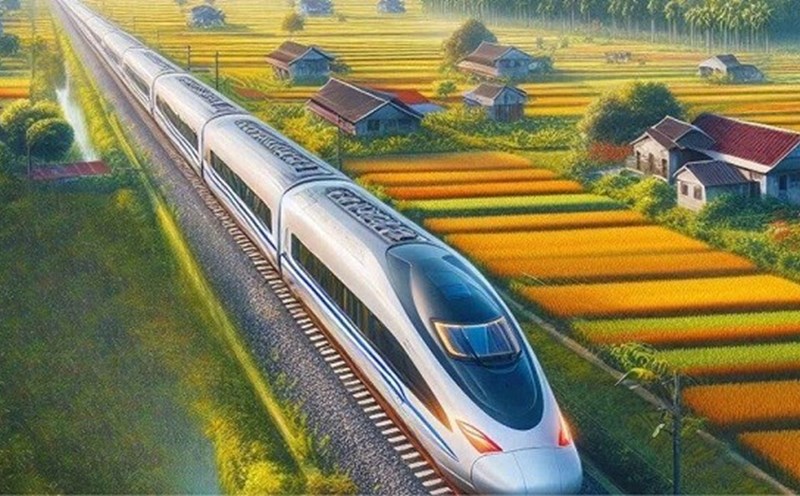On the morning of November 13, continuing the 8th Session, the National Assembly discussed in groups the investment policy for the high-speed railway project on the North-South axis.
Speaking at the group, delegate Nguyen Van Quan (Hau Giang Delegation) said that the Government's report needs to assess and clarify the limitations and forecast the difficulties when implementing this project.
“In the pre-feasibility report, the impact assessments did not clearly identify the limitations and difficulties, and did not predict the difficulties. The report stipulates some specific policies, but whether they are consistent or not has not been clearly assessed,” said delegate Nguyen Van Quan.
Next are the difficulties in site clearance and technology. “We will carry out this project for 10 years, what will the technology be like at that time? What about capital, capital increase, price, price depreciation, and difficulties in progress?” - this delegate asked.
Another issue in the pre-feasibility report shows that it will be basically completed by 2035. This delegate wondered why the word “basically” was used, it must be affirmed that it is completed, but saying that it is basically completed 10 years later is unacceptable.
Through monitoring key national projects, large projects are almost always behind schedule, have capital increases, time schedules or design adjustments. Long Thanh airport is an example.
“Almost all national key projects are stuck and still have many difficulties. While the project initially submitted its pre-feasibility report and feasibility report, we only saw rosy results.
The Government project report submitted to the National Assembly was all rosy, but when implemented, it was entangled in a series of policy mechanisms, capital, processes, and technology..." - delegate Nguyen Van Quan emphasized.
Therefore, delegates recommend that in pre-feasibility assessment reports, objective and subjective causes must be predicted so that delegates can understand clearly. When difficulties and obstacles are predicted in advance, there will be solutions to overcome them.
"9 out of 10 projects are stuck and facing difficulties such as delays, capital overruns, and project adjustments" - the delegate affirmed.
According to delegate Nguyen Van Quan, during the implementation process, the responsibility of the Ministry of Transport must also be bound.
On the same issue, delegate Nguyen Thi Xuan (Dak Lak delegation) said that if we are determined to implement it, this will be a symbolic project of the century. However, when implementing it, we must calculate the effectiveness of the project. This is an unprecedented project when we first researched and applied high-speed rail technology, so we need to set requirements on technology.
"We must catch up with world trends, be progressive, and not be out of date even in 50 years" - delegate Nguyen Thi Xuan stated.
In the report, the Government presented a very bright future, promising many good prospects when implementing the project. In fact, we have implemented many national key projects such as the North-South Expressway, although the Government has directed strongly, there are still problems with policy mechanisms, investment resources, site clearance, etc., leading to progress impacts.
Therefore, delegates suggested that the Government study and carefully consider choosing contractors and investors, and learn from the experience of some projects where investors were not guaranteed or did not have enough capacity, affecting the progress and quality of the project.











